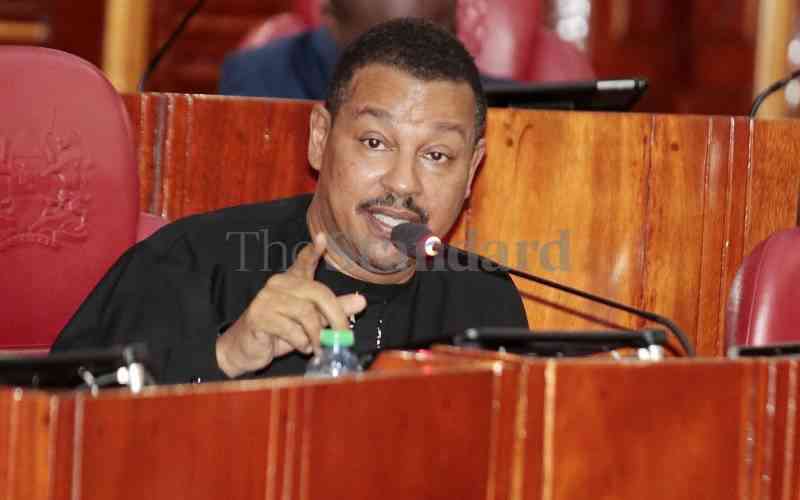I find it curious that among the raft of measures the recently formed presidential advisory committee against corruption gave President Uhuru Kenyatta lacks reward-driven public participation in lifestyle audit of corrupt public officials and robust integrity tests for those aspiring for political office.
The committee advised the President rather well but it did not seem to realise it is the public that mostly interact with the corrupt public officials. Logic therefore dictates that the public should be motivated to reveal the assets acquired by public officials.
The Attorney General should put in place a whistle blowing programme where those who want to report corrupt deals are given official cover. For example, an interactive website where public officials openly declare assets and liabilities would allow the public to view and reveal undeclared assets probably hidden among relatives, lawyers and shell companies. Once the veracity is confirmed, the assets would be seized by the State and auctioned. The protected whistle blower would then get at least 30 per cent of the money realised.
This method would be a sure way of speedy lifestyle audit of public officers working for government line ministries, departments and agencies.
However, the presidential committee tried to keep away the public from such participation. It is this isolationist strategy that makes impunity so easy to thrive.
Public officers isolate themselves by keeping away the public using outdated laws like Official Secrets Act in order to steal.
Again, without a reward, few people would bother to risk their lives in whistle blowing corrupt deals.
The Commission for the Implementation of the Constitution (CIC) came up with a bill meant to operationalise Chapter 6 of the Constitution on integrity of political aspirants but that piece of draft law was watered down when it reached Parliament. This is the bill that President Uhuru Kenyatta should himself fight for by directing Jubilee majority legislators to adopt in its original form to fight graft in Parliament and have the electoral body disqualify those not as clean as Caesar’s wife.
Parliament has been a key driver of graft since every time the Auditor General reveals cases of corruption and tables evidence in national and county assemblies, the culprits bribe committee members with part of the stolen money to be let off the hook. The CIC bill is therefore very important because it will allow only clean candidates to vie for political office.
No progress can be made in fighting graft unless the office of the Director of Public Prosecution is reformed and services devolved to all counties.
The Judicial Service Commission must continue purging judges who apparently defend corruption instead of fighting the vice. Right now, a number of judges would fail integrity test, including lifestyle audit.
On police reforms, my take on this is that Kenya should advertise internationally for the position of Inspector General of Police. This would come with a rider that applicants would have to come up with a document revealing needed reforms, which the Government of Kenya would give written assurances to finance. What would follow is best practice in police recruitment, training and operations.
 The Standard Group Plc is a
multi-media organization with investments in media platforms spanning newspaper
print operations, television, radio broadcasting, digital and online services. The
Standard Group is recognized as a leading multi-media house in Kenya with a key
influence in matters of national and international interest.
The Standard Group Plc is a
multi-media organization with investments in media platforms spanning newspaper
print operations, television, radio broadcasting, digital and online services. The
Standard Group is recognized as a leading multi-media house in Kenya with a key
influence in matters of national and international interest.
 The Standard Group Plc is a
multi-media organization with investments in media platforms spanning newspaper
print operations, television, radio broadcasting, digital and online services. The
Standard Group is recognized as a leading multi-media house in Kenya with a key
influence in matters of national and international interest.
The Standard Group Plc is a
multi-media organization with investments in media platforms spanning newspaper
print operations, television, radio broadcasting, digital and online services. The
Standard Group is recognized as a leading multi-media house in Kenya with a key
influence in matters of national and international interest.







